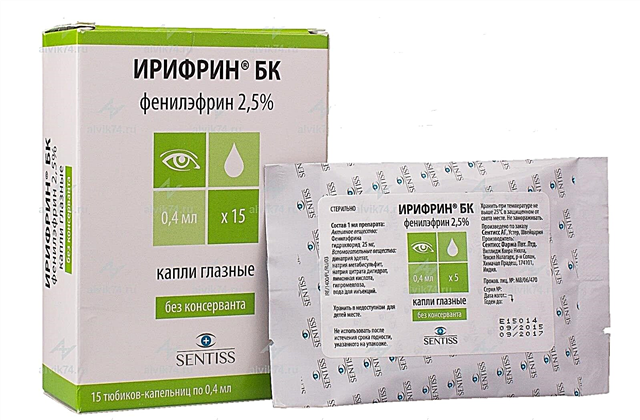To drink or not drink chicory while breastfeeding?
A drink from this plant is an excellent alternative to coffee (it has many useful properties), but if the woman did not consume it before giving birth, the introduction of chicory into the diet should be gradual, since allergic reactions can occur to it, like in the mother, and the child.
This plant contains substances that, when added to milk, contribute to the better assimilation of milk protein.
What do we know about chicory?
It looks like a weed that blooms with small purple flowers. The most favorable environment for its existence are meadows and fields. However, the value of this plant lies not in the flowers, but in the root. Since it is he who has many useful properties.
The use of this drink without consulting a doctor for hemorrhoids, varicose veins, gastritis, as well as vascular diseases is prohibited!
Beneficial features
A seemingly common weed contains many:
- organic acids;
- ascorbic acid;
- pectin;
- vitamins: A, C, B (B1, B2, B3), E, PP;
- inulin;
- carotene;
- mineral salts;
- resins;
- gland;
- calcium;
- potassium;
- magnesium;
- zinc;
- tannins;
- proteins;
- natural sugar (fructose).

In ancient Rome, this plant was widely used in cooking, especially for making salads.
This drink has many beneficial properties:
- due to the absence of caffeine in it, it can help a nursing or pregnant woman to exclude coffee from the diet;
- B vitamins contribute to its beneficial effects on the nervous system. This group of vitamins improves mood and energizes;
- inulin is especially useful for patients with diabetes mellitus, as it helps to lower blood sugar levels and neutralizes the harm from sweets;
- stimulates appetite and improves digestion;
- has a mild diuretic, choleretic and antiparasitic effect;
- normalizes metabolism and has an astringent effect;
- positively affects the work of the cardiovascular system;
- has an antiseptic and anti-inflammatory effect;
- promotes better growth of hair, nails, and also improves skin condition (due to vitamins A, E, PP);
- has a slight antipyretic and tonic effect;
- helps to increase immunity and restore strength;
- prevents iron deficiency anemia and is used to prevent it.
This drink is allowed for breastfeeding, in the absence of contraindications, primarily due to the absence of caffeine in it and the content of many useful substances in it.
Restrictions on use

Like all drinks, chicory has side properties, the development of which is extremely rare, but which every pregnant woman and lactating mother should be informed about.
The use of this drink is recommended no earlier than three months after childbirth, although the instructions do not indicate that it is contraindicated for breastfeeding and pregnancy. It is advisable to adhere to this rule so that the immunity of the crumbs by this time is a little stronger and adapted.
Most often, this plant does not have any harm on the body of the baby and his mother. And the percentage of adverse reactions is about 1 - 3%.
This drink is contraindicated for:
- the presence of urolithiasis in mom (due to its diuretic action, it can contribute to the movement of stones and blockage of blood vessels);
- tendency to develop an allergic reaction and the presence of an allergy to chicory in the mother or in the baby;
- vascular diseases, varicose veins, hemorrhoids (since it has the ability to thin the blood, which is fraught with bleeding);
- the presence of colic in the child or mom or baby's stomach upset.
Chicory for hv should be introduced gradually, starting with a couple of sips.
If a nursing woman for the first time after giving birth took a couple of sips of this drink, then it is necessary to monitor the reaction and the general condition of the baby during the day.
Do nursing mothers really need chicory?
When this question arises in my head, it is necessary to simultaneously think about whether the child and mother need the substances that it contains.
If you drink it to replace coffee, then it is a good alternative. But it should be remembered that it is not recommended to consume a drink from this plant more often than once every two days, as side reactions may occur.
The root of this plant has a huge number of useful properties, so it is widely used not only as a drink, but also medicines and biologically active additives are made from it.

Possible effects of chicory on a baby during breastfeeding
How this plant affects the body of the crumbs is not entirely understood. But in the absence of side effects in the form of allergic reactions, colic, anxiety, sleep disturbances, constipation or flatulence, it is believed that it has a beneficial effect on the baby's body (strengthens the immune system, normalizes stool, reduces gas formation in the intestines, improves appetite and sleep).
The main rule of its application is “do no harm” to either the baby or his mother. Therefore, in the presence of chronic diseases in the mother, it is mandatory to consult a doctor before using it.
How to choose the right one when buying, storage rules
First of all, look at the shelf life of the product, regardless of the form of its manufacture (liquid, ground, soluble). A quality insoluble product is brown and dry to the touch.
When purchasing a product, carefully read the composition (especially in a soluble form) - it should not contain preservatives, stabilizers and other substances, as they can harm the crumb.
When buying it in a soluble form, the package must be hermetically sealed, and the powder must be homogeneous and without lumps.
During lactation, it is recommended not to drink chicory with various additives.
How much chicory can be consumed with HS, how to cook?
The recommended dose during the day is 1 cup, and it is better to take a break at intervals of a day (in order not to exceed the concentration of substances that cause allergies) while breastfeeding.
Method of preparation of a classic drink: pour boiling water over one teaspoon of soluble powder from this plant. If there is no side reaction and you want a richer taste, then you can increase the dose by one more spoon. Sugar is added to taste.

Conclusion
During the period of breastfeeding, a woman has to give up many products that she uses in everyday life. Coffee also makes this list because of its caffeine content. It is known that chicory is an alternative to this drink, as it has many beneficial properties and does not contain caffeine. But you should not abuse it either, since it can bring not only benefits, but also harm to the baby if it is misused, intolerant or prone to an allergic reaction. Therefore, before you eat them, consult your doctor and weigh the pros and cons.
Be healthy! Take care of your children!
Article rating:



